Channel Seven has continued its flurry of major sporting events with the launch of its Commonwealth Games coverage on July 29. This is the culmination of perhaps a once in a lifetime sport schedule that has seen the Tokyo Olympics, the Beijing Winter Olympics, the Paralympics and the Commonwealth Games all broadcast on Seven in a 13-month time span.
Mediaweek has already delved into Seven’s coverage of the Commonwealth Games which can be seen here, including conversations with Hugh Whitfeld, Seven’s UK bureau chief, and Seven’s planning manager for Birmingham 2022, Dacien Hadland.
Mediaweek has now caught up with Seven’s head of network sport, Lewis Martin, about how the broadcaster has brought this massive exercise in sports broadcasting together.
“The last 12 months has seen a historical schedule of events that will not be repeated”, said Martin. “the Tokyo Olympics, the Paralympics, the AFL finals in Western Australia, the Bathurst 1000, the Spring racing carnival, Ashes cricket, then back into a Winter Olympics, then back to the footy, and now the Comm Games. I have got to pinch myself sometimes, I am so lucky to be part of it.”

The technology behind Seven’s coverage of the Commonwealth Games
The local production for the Commonwealth Games is based in a Sydney remote broadcast centre (RBC) which is connected to the Birmingham 2022 International Broadcast Centre (IBC) over dual (diverse) high-speed fibre links transporting 30 live HD sports feeds back to the RBC. The production team features two live production control rooms to produce programs for Channel Seven, 7mate and 7Two.
The hosting studio features a 15-metre ultra high definition LED wall for graphics and live pictures with 5 cameras – including jib and steadicam – as well as augmented reality graphics, which all help connect the hosts and viewers with on-site reporters, commentators, and sports.
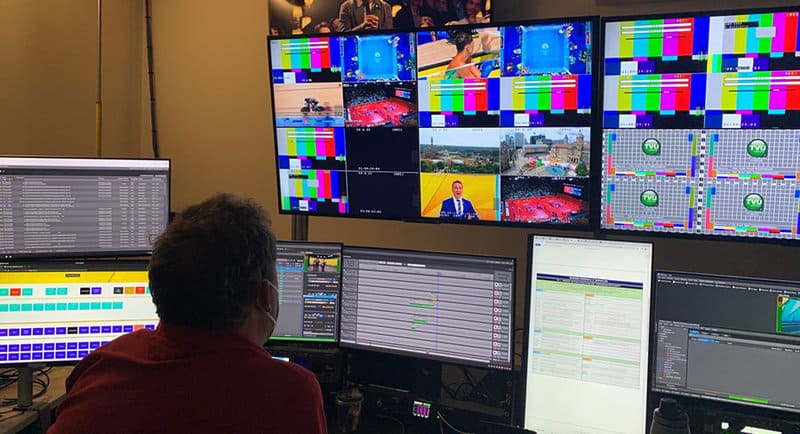
The production team also has at its disposal four craft edit suites, three prep edit suites, three production offices, a master control for switching feeds and scheduling live sport feeds, and a complete media management system to ingest and store all incoming live content. This tech is available to live, post, and digital production.
Martin said that technology was only one part of the equation when ensuring a quality broadcast of such a challenging event.
“We relied on two things: good people and good technology coming together. As a result of Covid, sports broadcasting across all networks of all shapes and forms evolved dramatically. What I would take out of that is the great collaboration of people. People working together and exploring technology.”
How Seven covered a global sporting event
After recently broadcasting both a Summer and Winter Olympics, Martin said that the biggest change this time around was how many chances at gold Australia has.
“The biggest difference is that we’ve got 200 medal attempts to cover in 11 days. We’ve got to make sure for those athletes that have worked so many years for that moment, that their stories are told. We’re able to do that across two linear channels on Seven and 7mate and on occasion 7Two, and the 30 odd digital channels on 7plus. The Comm Games are different, but geez, they are busy.”
Martin said that it is the production team’s job to capture both the highs and lows of the Commonwealth Games, which is part of the magic of what makes the event so captivating.
“We’re working with two great leaders on the broadcast in the highly respected Kirsty Bradmore who is our EP, and 2IC Lesley ‘Taps’ Tapsall. A big focus for us in our daily preparations is how they will make sure that everybody has an opportunity to see those 200 metal attempts, because it’s an incredibly busy 11 days of nonstop action. Not only will there be glory and triumphs out of those 200, but there are also going to be people that will be disappointed, there will be people to miss out, and there will be the human stories.”
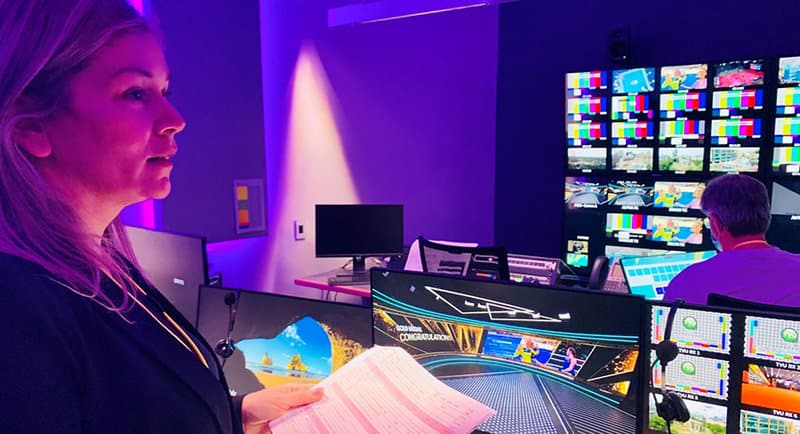
Kirsty Bradmore
With the last two and a half years dominated by the Covid-19 pandemic, Martin said that the team at Seven made sure to read the room and consider the mood of the nation when approaching major broadcasts like the Olympics and Commonwealth Games.
“When we put together our rundowns and we put together our music, we take great empathy with where the audience is right now. Times are uncertain, there is no doubt about that. We as broadcasters and creators and the entire team consider how are people feeling out there. We think about how we can make sure that we get the right tone and entertain people and take their minds off the uncertainty and give them 11 great days on Channel Seven.”
How 7Plus supports Seven’s coverage
Seven’s coverage of the Commonwealth games extends beyond its linear coverage, as the broadcaster will offer up to 30 additional channels on its 7Plus platform. Martin says this allows viewers to become their own directors.
“It is a huge credit to our 7Plus digital team, Gereurd Roberts, Tara Carlon and the team around them, because the user experience for 7plus is so strong. Consumers are okay to go from a linear to a digital channel more so than ever before. We experienced that through the Tokyo Olympics. We had hundreds of thousands of Australians watching a whole multitude of sports at any given time on 7plus, as we did through Beijing. It’s up to you, you can be watching any sport you choose. Our job is to make sure that we send everybody to the right place at the right time.”
Seven’s Linear broadcast of the Commonwealth Games
While 7plus is becoming a growing force in Seven’s coverage, both the Tokyo Olympics and Bejing Winter Olympics proved the continuing importance of linear broadcasting for large sporting events through consistently strong ratings. Seve’s curated broadcast features Bruce McAvaney back for his fifth Commonwealth Games broadcasting from the UK alongside Tamsyn Lewis-Manou.
Seven’s coverage will also feature former athletes Ian Thorpe, Cate Campbell and Curtis McGrath as well as Seven’s broadcast hosting team which will be led by Hamish McLachlan and Abbey Gelmi and will feature Matt Shirvington, Emma Freedman, Johanna Griggs, Abbey Holmes, Ryan Daniels and Trent Copeland. Mel McLaughlin, Jason Richardson, Amy Parks and Matt Carmichael will be joined on the ground in Birmingham by Cate Campbell.
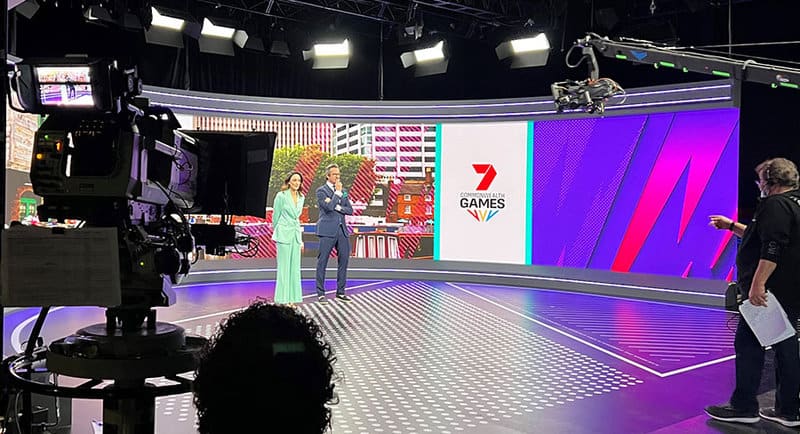
Hamish McLachlan and Abbey Gelmi
When asked what was the secret to a strong linear broadcast, Martin kept it simple and said that it was the people.
“You’ve got to have some really talented people on screen to make sure that you can steer out of the very busy intersection of the sporting schedule. We’ve got a really strong set of hosts who are very experienced. You think about the likes of Bruce McAvaney and Johanna Griggs, two giants in sports broadcasting. They will be hugely supported by probably the best collection of live producers in the country. It’s very complex, but our job will be to make it very simple and easy for viewers to enjoy the Commonwealth Games.”

The storytelling of the Commonwealth Games
When asked about how Seven will balance covering Australian athletes and the top international stories of the Commonwealth Games, Martin said that Seven will be first and foremost focused on the Aussies.
“We will be unashamedly barracking for Australian athletes, we don’t apologise for that. We’re also going to be respecting all the athletes that are competing in all nations, that’s really important to us. There’ll be some phenomenal achievements from athletes from other countries. It is not only the 200 medal attempts of the Australian athletes, but it’s also it’s going to be some of the wonderful achievements of athletes from other countries.”
Martin said that when it comes to waiting for the narratives of the Commonwealth Games to unfold that the broadcast team at Seven is just like every viewer at home, so they have to prepare for everything.
“We do a lot of research into form and we rely on the likes of Bruce McAvaney, Johanna Griggs, Hamish McLachlan and Abbey Gelmi and our hosts that are doing the research as well as our researching team. My view is, it’s live sport, anything can happen. I can’t tell you what’s going to happen and that’s the magic of live sport. I honestly have no idea what’s going to happen.”
Timezones
When it comes to timezones, Martin said that Seven was very fortunate with the Commonwealth Games.
“There’s so much live action in primetime and medal events in primetime given the volume of competition and the number of athletes participating. Not only do we have a whole range of outcomes in primetime, but then we’ve got to be able to tell the stories of the results overnight. There are going to be some extraordinary stories and results that we’re going to have to follow up from that night as well. It’s going to be so busy and action packed – probably more so than the previous multi sport events of the Beijing Winter Olympics, the Paralympics, and the Tokyo Olympics.”
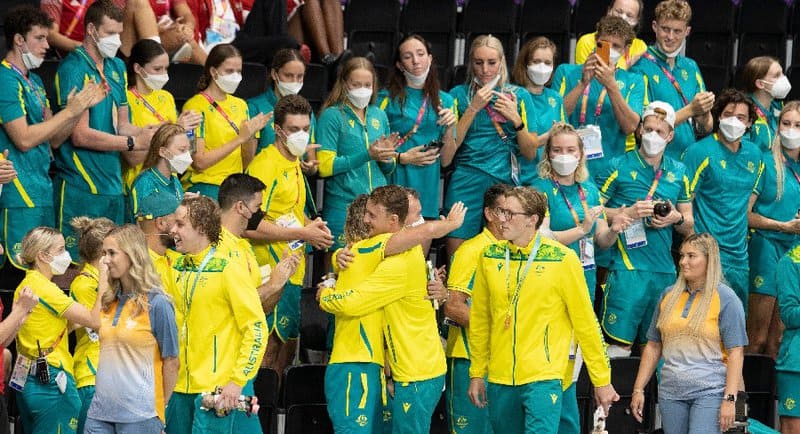
Looking back at a special 13 months
The Commonwealth Games will bring an end to a special period that saw a Summer Olympics, Winter Olympics, Paralympics, and Commonwealth Games all run in quick succession. When asked to reflect on everything that has happened in that time, Martin hopes that people will respect the work that has gone into the broadcast.
“I would like to think that the Australian public will look back on what we’ve done in the last 12 months and respect what we’ve done. We care about the athletes and their stories, we care about the viewers, and it’s all been for free. Not only do I hope the Australian viewing public looks back and sees that there was a lot of passion, heart and soul in those broadcasts, but also for those that worked on it to look at it as a very good professional experience to be part of.”
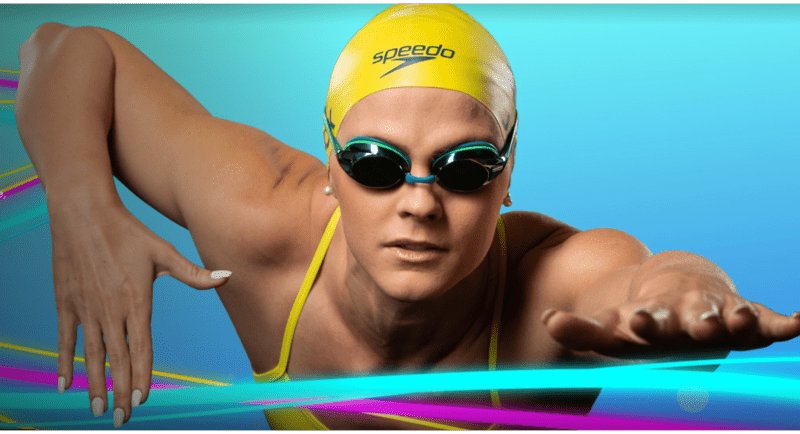
The importance of anti-siphoning laws in Australian Sport
Martin said that the Commonwealth Games was another example of why anti-siphoning laws were important, and the importance of live sport.
“It is important that Australians continue to have a choice in their media, and all great sporting events can be shared by all Australians. That’s something that Seven West Media is passionate about. I think that’s really important to the culture of our country. It’s one of the reasons why we as a nation, punch above our weight in international sport. It is because the entire nation can share the sporting ambitions or sporting dreams of our athletes.”
—
Top Image: Seven’s head of sport Lewis Martin
